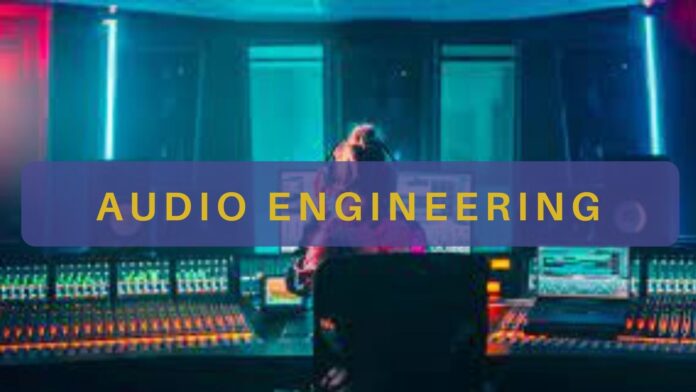An audio engineering program is an academic course that can equip you with the knowledge and skills of creating professional sounds. It primarily deals with the technical aspects of the sound like mixing, recording, editing, and mastering sounds. Audio engineering is the heart and soul of the modern music industry. The innovation and development in the music industry that improves sound quality and clarity are all efforts of the audio engineering department.
An audio engineering course is a bachelor’s degree is a bachelor’s degree suitable for students passionate about music and who desire to work in the music industry. The academic program is a unique amalgamation of theoretical knowledge and practical training that can help you work in the modern music industry with ease and competency.
The labor statistics have estimated to grow by 2% annually by 2028. Employment opportunities in the audio engineering department are expected to grow by 8% per year until 2028. In the future audio engineering,the sector can grow at an accelerating rate over the next few years because of the technological advancements that lead to innovations in the sound department of the entertainment industry.
An audio engineering program covers the core subjects like sound mixing, mastering, editing, recording, etc. The course use Pro Tools VST plugins to focus on the development of technical skills and the creative aspects of producing sounds and music.
Are you an aspiring candidate with a passion for music? You can pursue an audio engineering program from Canada,which can be an ideal place to study. It is home to some of the top music institutes with a well-designed course curriculum to help you advance in your music career. However, in this article, we’ve curated the topics covered in a well-designed audio engineering program.
Here are some of the subjects covered in the structured audio engineering course over the weeks of intensive learning:
- Music Fundamentals
- Introduction to MIDI (sound Design)
- Sound and Recording techniques
- Studio Technologies
- Multitrack recording
- Advanced Digital Audio
- DJ Arts
- Sound Maintenance and Repair
- Critical Listening Techniques
- Recorded Music Production
- Orchestration
- Sound Trach for Film and Television
- Live Sound Productions
- Interactive audios
- Acoustics
These subjects mentioned above are the topics that can familiarize you with the fundamentals of audio engineering, studio techniques, music theory and ear training, mixing and mastering, principles of sounds, etc. The application of this fundamental knowledge in creating music can produce magical effects in tunes and sounds.
The job prospects of an audio engineering graduate are immense because the billion-dollar music industry requires qualified and well-trained audio engineers. Some of the career outlooks for a graduate in audio engineering are:
- Music Producer
- Audio Content Creator
- Recording Engineer
- Sound Editor
- DJ
- Audio Visual Technician
An audio engineering course can develop core skills and competencies that can help you function well in the sound department. After pursuing the course, you can be well versed with the latest knowledge and skills that can be applied to a range of roles in the modern music industry. Sign in now to know more about the audio engineering program!
Write and Win: Participate in Creative writing Contest & International Essay Contest and win fabulous prizes.











